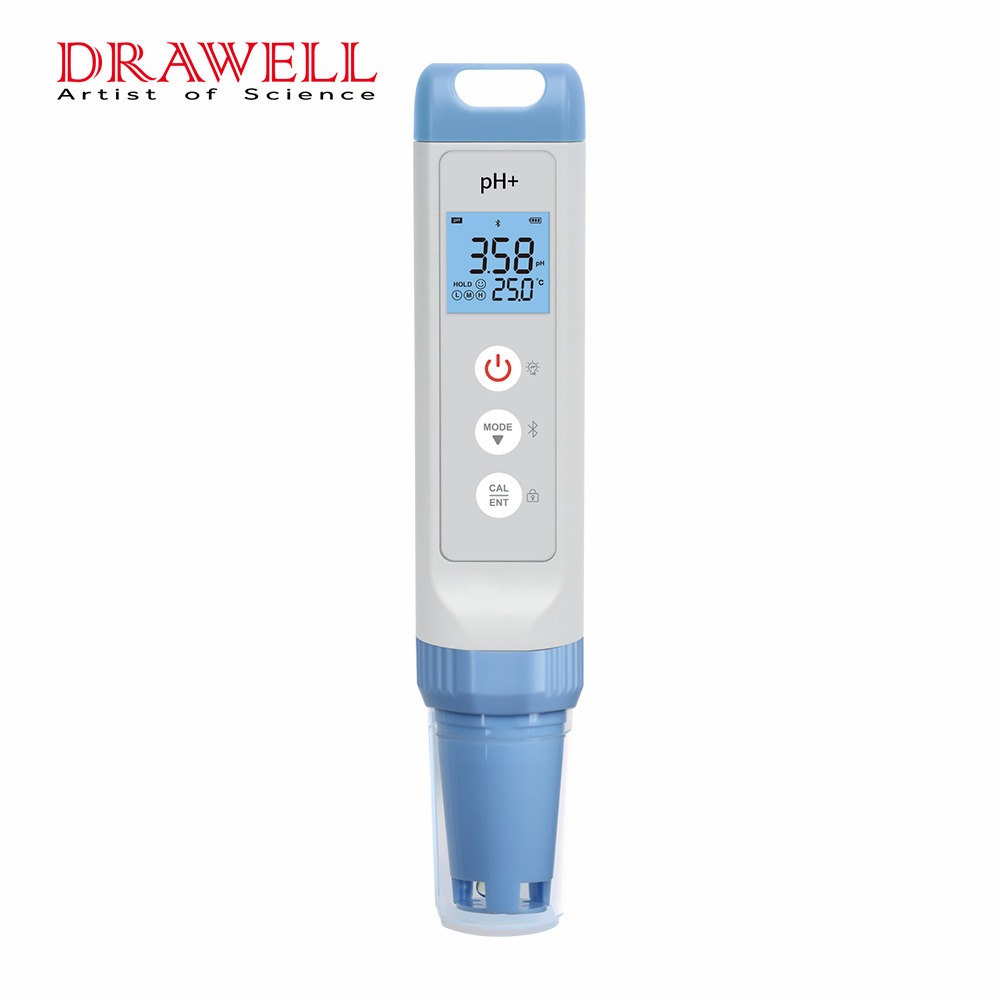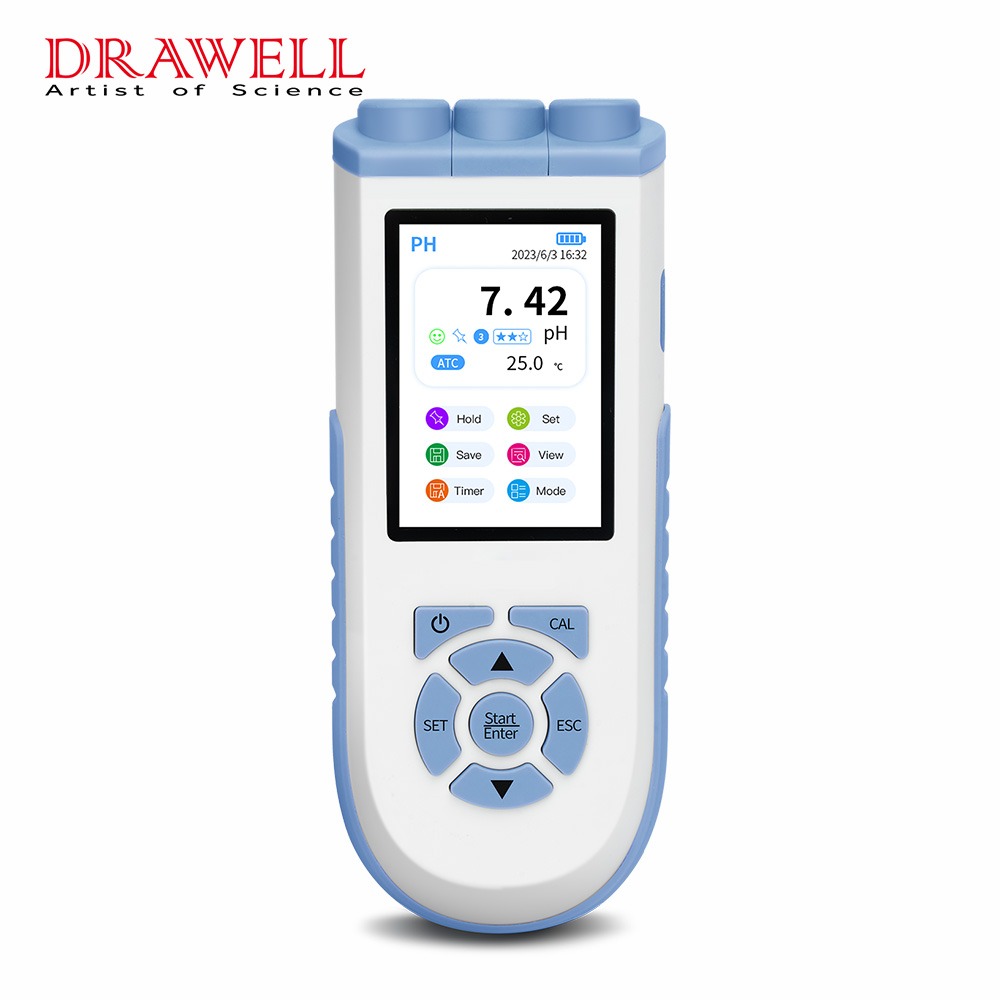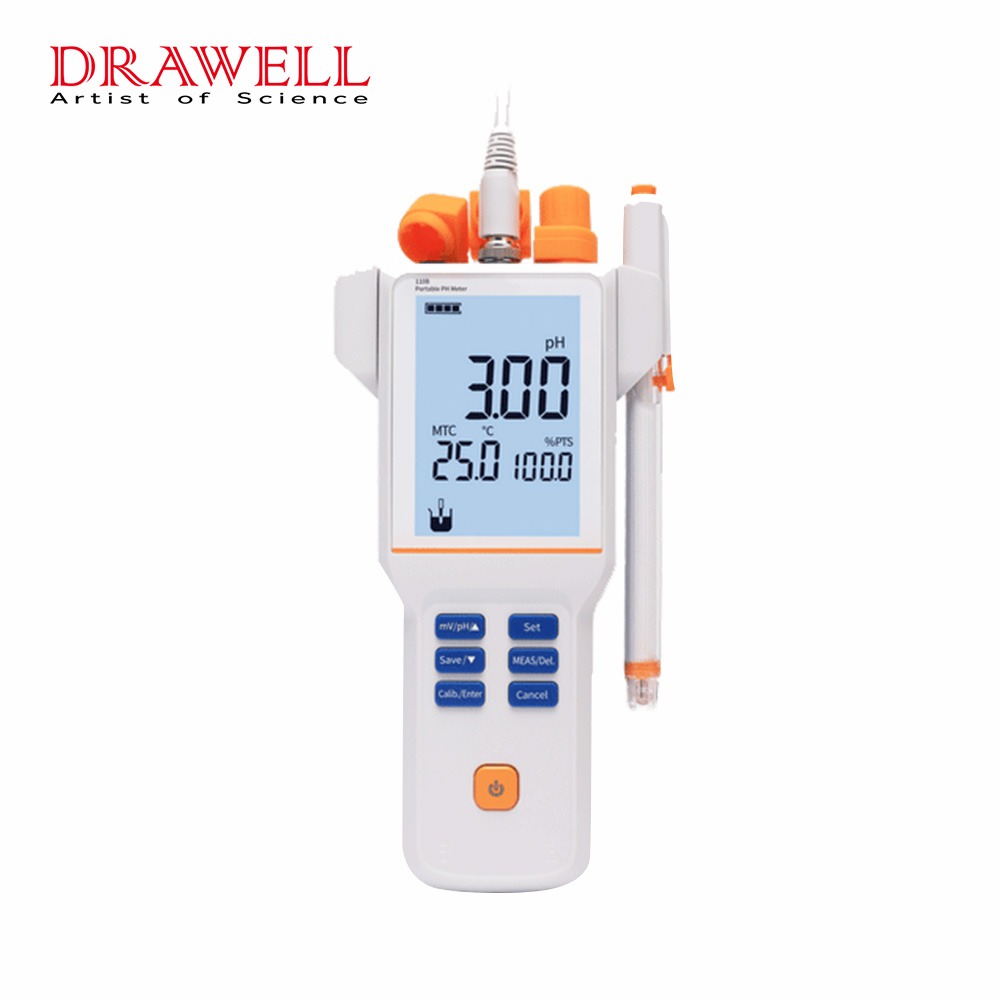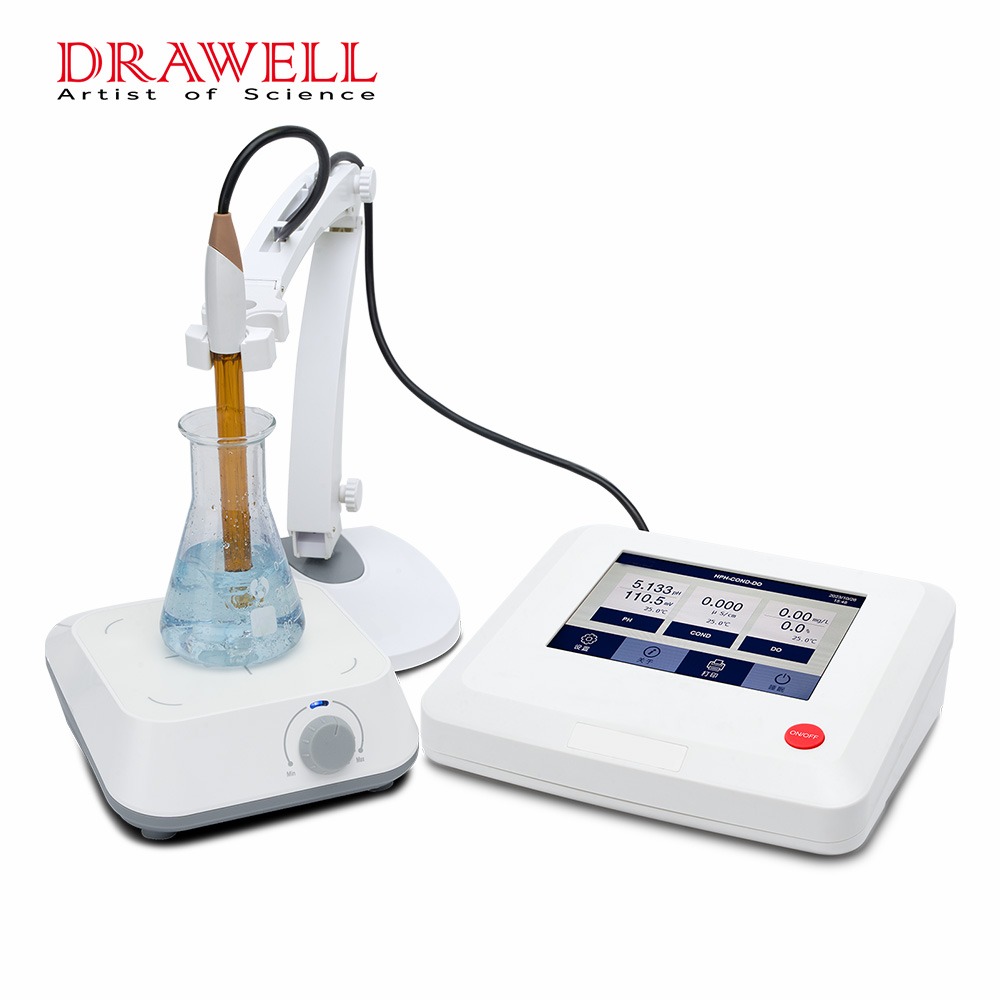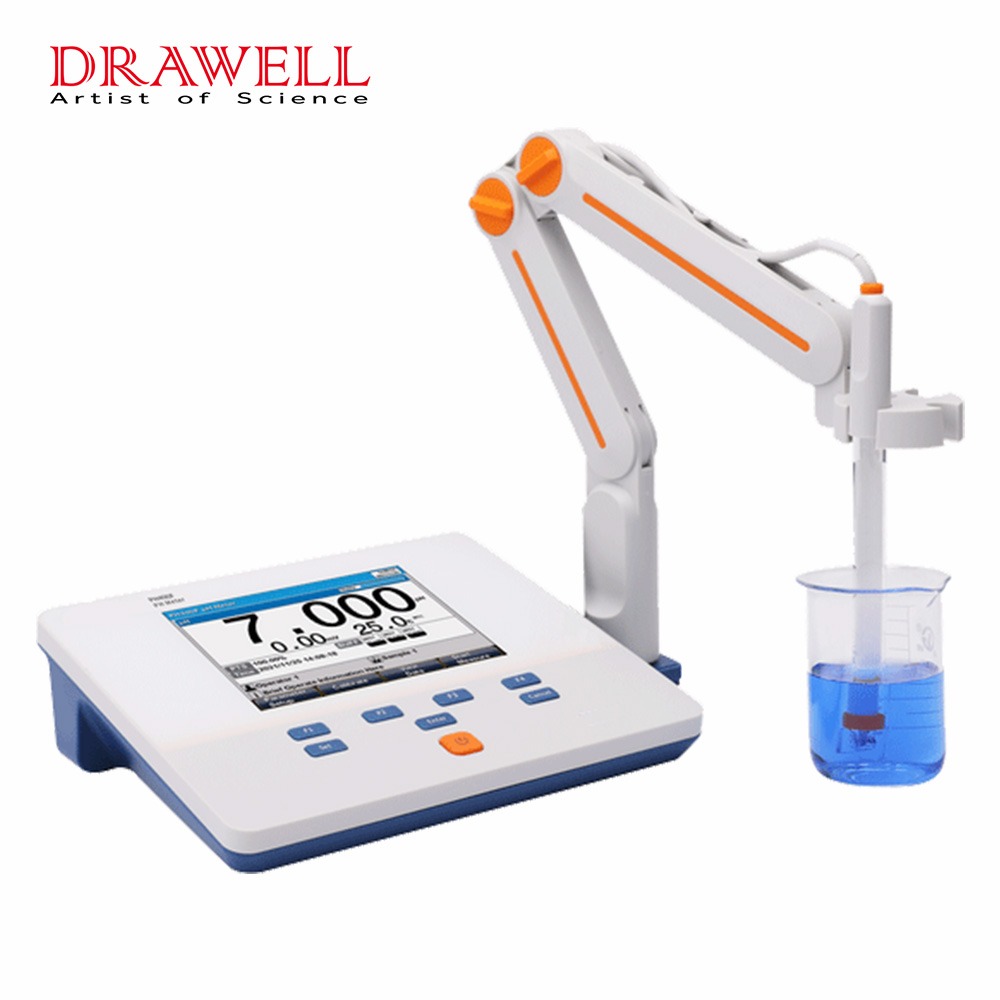PH Meter
What is PH Meter?
A PH meter is a scientific instrument that measures the hydrogen-ion activity in water-based solutions, indicating its acidity or alkalinity expressed as pH. PH meters are widely used for soil measurements in agriculture, water quality for municipal water supplies, aquaculture, environmental remediation, pharmaceuticals, food, industry, electric power, scientific research, manufacturing and many other applications.
Types of PH Meter
There are many types of PH Meter, and you can choose the right type of PH Meter based on your application scenario and usage requirements. Common types of PH Meter include pocket, portable and benchtop types PH Meters.
Features of PH Meter
Pocket PH Meter
- Inexpensive: Affordable for basic conductivity measurements.
- User-friendly: Easy to use, usually just submerge in water to read the data.
- Pocket: Small, easy to carry.
PH+ Pocket pH/mV. Temp Tester, Bluetooth Series PH+ Meter
• mV(ORP probe optional):-1,000mV – +1,000mV
• Temp. Range:0-50℃(32-122F)
• IP rating: IP67
Portable PH Meter
- Portable: Small and lightweight, suitable for on-site measurements.
- Multifunctional: Often includes temperature compensation to improve measurement accuracy.
- Battery-operated: No power outlet required, flexible use.
PH10 Portable PH Meter
• mV(ORP probe optional) : -1,999mV – +1,999mV
• Temp. Range:0-100°C
• IP57 Water/Dustproof rating
PH110B Portable pH Meter
• mV Range:-1400.0 to 1400.0 mV
• IP65 waterproof
Benchtop PH Meter
- High Accuracy: Typically more accurate than portable conductivity meters, suitable for laboratory use.
- Multifunctional: With many features such as data logging, temperature compensation, and multi-parameter measurement.
- Stability: Robust construction, suitable for continuous use.
PH100T Benchtop pH/mV/ Meter-touch Screen
• mV(ORP probe optional):-1,999mV -+1,999mV
• Temp. Range:0-100°C
• IP54 dustproof and spillproof
PH400F Benchtop pH Meter
• mV Range:-2000.00 to 2000.00 mV
• Temp. Range:-10 to 135℃, 14 to 275℉
• IP54 waterproof
How to Properly Calibrate a pH Meter?
To properly calibrate a pH meter, you must perform at least a two-point calibration using two different buffer solutions (pH 4 and pH 7). For highly accurate pH measurements, use a three-point calibration (pH 4, pH 7, pH 10). After rinsing with distilled water, insert the pH probe (electrode) into the solution until the pH level stabilizes and the pH meter accurately matches the pH of the calibration solution.
One of the most overlooked steps in pH testing is calibrating the pH meter. Properly calibrating your pH meter is an essential step when testing the pH of a solution. This is because the electrodes in the pH probe can change over time, introducing errors. Therefore, calibration is essential to determine an accurate pH value.
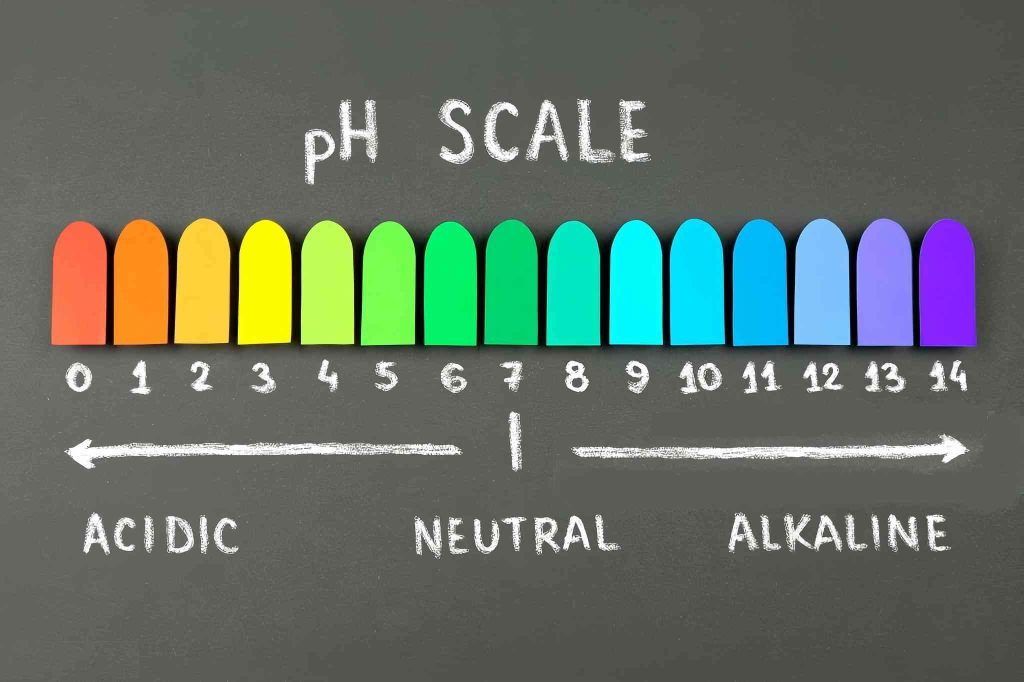
How Often Should I Recalibrate My PH Meter?
How often you should calibrate your pH meter depends on your usage and the likelihood of contamination. The more you use your pH meter, the greater the likelihood of contamination and the more frequently you will need to recalibrate your meter.
We recommend that you properly calibrate/recalibrate your pH meter in the following situations:
- pH electrode is brand new
- pH electrode has not been used for a while
- You recently cleaned your pH electrode
- You need a very accurate pH measurement
- pH meter is used to measure concentrated solutions
When you first receive your pH meter, remove the pH probe from the packaging and immerse it in a cup of additive solution for at least 4 hours. Do the same if your pH probe has been dry for a long period of time. If you use your pH meter regularly, immerse the electrode in a cup of tap water for 15 minutes.
When your pH electrode no longer provides accurate readings or is no longer stable in various buffer solutions, it is time to replace your pH probe.
Applications of PH Meter
A PH meter is a scientific instrument that measures the hydrogen-ion activity in water-based solutions, indicating its acidity or alkalinity expressed as pH. Testing of pH via pH meters (pH-metry) is used in many applications ranging from laboratory experimentation to quality control.
- Agriculture
- Pharmaceuticals
- Food
- Industry
- Electricity
- Scientific Research
- Metallurgy

Why Choose Us?
“Multiple suppliers” have always been an issue in the procurement process. Drawell as a one-stop laboratory equipment and scientific instruments supplier, can perfectly solve this problem. In addition to manufacturing our own equipment, we also represent other laboratory equipment. Our product lines are rich and diverse at competitive prices. Provide one-stop service to customers.
User Training – Training by Drawell skilled engineers about installation, debug tests, technical services, etc. It can happen in our factory in China, or at the site in the customers’ country. Cost depends on where and when the training happens.
To discuss the problem and get it resolved, online chats, real-time video calls, and remote guidance. For the after-sales stage, our online technical guidance is free and ready forever.
1 year free official warranty, including repairing quality-damaged parts, and offering replacements of selected parts (shipping cost is extra). 5% of the product price is charged for extending the warranty before the end of the official warranty.
Order Process


